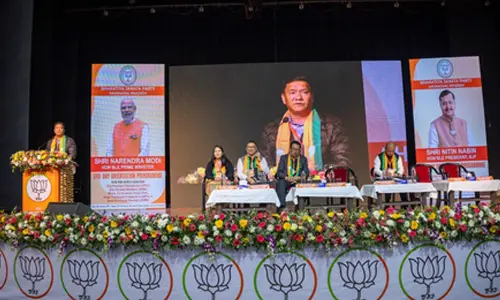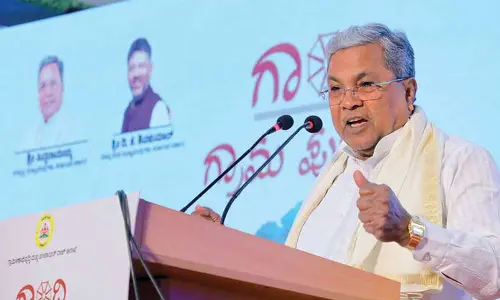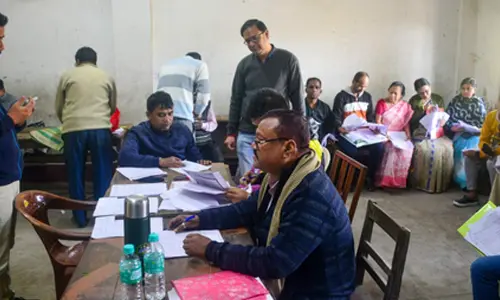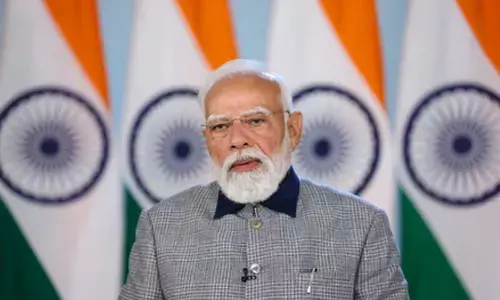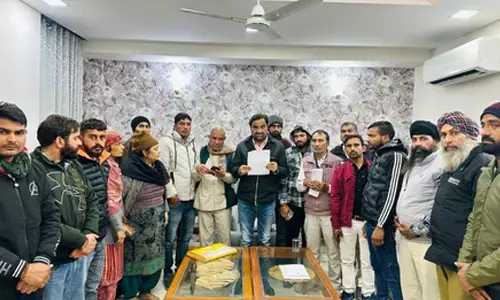Pioneer of Telugu encyclopaedia

 A very outstanding leader of the State who rose to the position of Prime Minister, P V Narasimha Rao came to Vijayawada nearly a decade ago to unveil the statue of Ayyadevara Kaleswara Rao, front-ranking freedom fighter and an eminent advocate, at a prominent place in the city.
A very outstanding leader of the State who rose to the position of Prime Minister, P V Narasimha Rao came to Vijayawada nearly a decade ago to unveil the statue of Ayyadevara Kaleswara Rao, front-ranking freedom fighter and an eminent advocate, at a prominent place in the city.
Paying a rich tribute to him for his sacrifice and scholarship, Narasimha Rao said that it was a very interesting coincidence that in the latter half of the 19th century, there was a galaxy of men of great eminence in the country and all of them were outstanding not only in their chosen profession of law, medicine and so on but they were multifaceted in the real sense of the term.
Tilak, Gokhale, Aurobindo and Rajaji were very learned and prolific writers. Kaleswara Rao, Komarraju Lakshmana Rao, Duggirala Gopalakrishnaiah, Mutnuri Krishna Rao, Madapati Hanumantha Rao, to name only a few from our State, belonged to that genre of intellectuals, he said.
Komarraju Lakshmana Rao stands apart from others for his historical research and pioneering efforts in bringing out Telugu Encyclopaedia, 'Andhra Vignana Sarvasam', on the lines of Encyclopaedia Brittanica. He strove to enlighten Telugu people of their history and culture when there were no authentic works available.
He was born in Penuganchiprolu of Krishna district on May 18, 1876. Today is his 137th birth anniversary. His father Venkatappaiah worked as Dewan of Munagala Zamindar, Raja Venkata Ranga Rao; well-known social reformer and writer Bandaru Atchamamba was his step-sister. When he lost his father in his third year, he moved with his step-brother Shankara Rao to Bhuvanagiri where he had spent his early childhood.
Later he went to Nagpur where his sister was living with her husband and continued his studies in Marathi medium. He took his BA and later BA Honors with Sanskrit as his main. In 1901 he passed MA (History) of Kolkata University by private study.
During his stay in Nagpur, he worked for some time as editor of Marathi papers 'Samachar' and 'Vividha Vignan Visthar'. Though he became proficient in Marathi language and literature, he did not lose his love for his mother tongue Telugu and continued writing in Telugu and, along with his sister, wrote a number of articles on women's education and their problems.
He helped her in writing a great work in Telugu in which there were stories of eminent women of a thousand year period. At that time he realised that there was dearth of books on history in Telugu. His first historical work then was 'Sivaji Charitra' which he wrote in Nagpur.
Later he went to Machilipatnam and, under the guidance of his step-mother, married Kotamamba, daughter of Karnam of Kankipadu, Kanuri Mallikharjuna Rao. Then, in 1902, he joined service of Munagala Zamindar as his Dewan and, along with him, developed contacts in Nizam State as the Raja was keenly interested in Telugu literature.
 It was then that he came into close contact with reputed Telugu scholar, Ravichettu Ranga Rao. It helped him get into touch with scholars, Adipudi Somanadha Rao and Mylavarapu Narasimha Sastry. Along with them in the residence of Ranga Rao he started on September 1, 1901 a library named 'Sri Krishna Devarayandhra Bhasha Nilayam'. The main aim of the library was to help Telangana people to acquire proficiency in Telugu language. The library is still there under the same name in Sultan Bazar area in Hyderabad as a very prominent literary center.
It was then that he came into close contact with reputed Telugu scholar, Ravichettu Ranga Rao. It helped him get into touch with scholars, Adipudi Somanadha Rao and Mylavarapu Narasimha Sastry. Along with them in the residence of Ranga Rao he started on September 1, 1901 a library named 'Sri Krishna Devarayandhra Bhasha Nilayam'. The main aim of the library was to help Telangana people to acquire proficiency in Telugu language. The library is still there under the same name in Sultan Bazar area in Hyderabad as a very prominent literary center.
Later, in 1906, with the financial support of Munagala Zamindar, he started along with Gadicharla Harisarvothama Rao, Kaleswara Rao and Ranga Rao, 'Vignana Chandrika Grandhamandali' to inculcate among Telugu people scientific attitude and human values rising above considerations of religion, caste or region and to strive for removal of untouchability and promote women's education and so on.
The key person for this project was Lakshmana Rao. Its operations were shifted to Madras in 1908 when the Zamindar shifted to that place. Along with Harisarvothama Rao and Dr Achanta Lakshmipathi, he spent days and nights in the Connemara Public Library and collected lot of material from the available books for their ambitious project.
Apart from that, they had also written articles on a variety of subjects and produced 'Andhra Sarvasvam' in three volumes of 2000 pages. On a fine paper with illustrations, without any error, they were brought out and Lakshmana Rao's entire life was spent for that purpose. He coined equivalent words in Telugu, 'Viswavidyalayam' for University, 'Sampadakudu' for Editor.
With a view to writing an exhaustive history of Andhras and naming it 'Andhra Samputam', he traveled all over the places, collecting material, without paying attention to his frail health condition. As a result, he fell seriously ill and passed away on July 12, 1923, in his 46th year.
He was a happy father of two worthy children, the first popular lady doctor and Lok Sabha member from Vijayawada, Dr K Atchamamba, and K Vinayaka Rao, a reputed social activist. He was truly a pioneer in awakening Telugu people through his research and writings more than a century ago.








